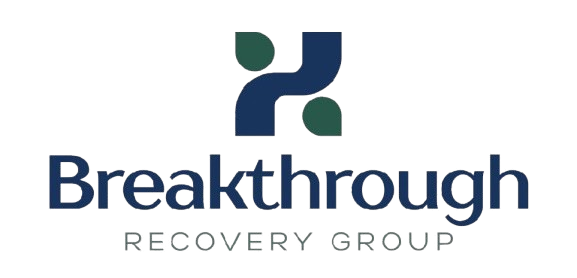Drug Treatment in Spokane WA
Drug addiction is a multifaceted disease that affects millions of individuals worldwide—not just the people directly struggling with it, but their families, communities, and workplaces. According to the National Center for Drug Abuse Statistics, approximately 21 million Americans suffer from substance use disorders. While there is no “one-size-fits-all” solution, recovery is possible with a combination of treatment programs and strong support systems. If you or someone you love is battling substance abuse, exploring options for drug treatment in Spokane, WA can be the first step toward healing. This guide highlights the critical role support systems play in recovery and provides actionable insights into understanding addiction and available resources.
Understanding Drug Addiction
Addiction is more than just a bad habit or poor decision-making—it’s a chronic disease that rewires the brain. With prolonged drug use, changes occur in brain structure and chemistry, leading to uncontrollable cravings, withdrawal symptoms, and repeated misuse, even in the face of severe consequences. Drug addiction doesn’t only harm physical health; it often leads to emotional distress, strained relationships, financial instability, and social isolation. Effective treatment not only addresses the physical aspects of addiction but also provides the individual with the tools needed to rebuild their life and reintegrate into the community.
Options for Drug Treatment in Spokane WA
Spokane, like countless communities across the United States, has faced significant challenges related to substance abuse. The devastating effects of addiction can be seen throughout the community, affecting individuals, families, and neighborhoods. However, Spokane is also home to a growing network of dedicated services and programs aimed at helping individuals take steps toward recovery and rebuild their lives. From inpatient rehabilitation centers to outpatient counseling programs and support groups, there are a variety of options for drug treatment in Spokane WA available to meet different needs and circumstances. These resources are designed to provide not just treatment, but also hope, guidance, and a path to a healthier future. Here are some of the options available for drug treatment in Spokane WA:
1. Outpatient Rehabilitation
Outpatient programs in Spokane offer a flexible and supportive approach to recovery, enabling individuals to maintain their daily routines, such as work, school, or family responsibilities, while attending therapy sessions and receiving personalized care. These programs provide a structured environment where individuals can access counseling, group therapy, and other resources tailored to their unique needs. Outpatient care is often best suited for those with mild to moderate substance use disorders who can benefit from staying connected to their home environment and support system. By combining professional guidance with the familiarity of daily life, these programs help individuals build the skills and resilience needed for long-term recovery.
2. Residential or Inpatient Treatment
For those struggling with severe addictions, inpatient facilities provide a structured and supportive environment designed to promote recovery. These programs allow individuals to dedicate their full attention to healing, away from the everyday distractions, triggers, or negative influences that can hinder progress. Inpatient care includes round-the-clock supervision, access to professional medical and psychological support, and a tailored treatment plan to address each person’s unique needs. Facilities like the American Behavioral Health Systems Spokane center offer a safe, nurturing space where individuals can focus on building healthier habits, gaining coping skills, and ultimately reclaiming control over their lives.
3. Detoxification Services
Detox services are often the first and most crucial step on the road to recovery from substance dependency. Spokane County offers access to medical detox programs specifically designed to safely manage withdrawal symptoms under the supervision of trained healthcare professionals. These programs provide a controlled and supportive environment where individuals can begin to stabilize physically and prepare for the next steps in their recovery journey. This critical phase not only helps the body start breaking free from the hold of substances but also sets the foundation for further treatment and long-term success in overcoming addiction.
4. Aftercare Programs
Recovery doesn’t end with the conclusion of a treatment program—it’s an ongoing journey that requires consistent effort and support. Aftercare services, such as sober living homes, ongoing counseling, and support groups in Spokane, play a crucial role in helping individuals maintain their sobriety. These resources provide a safe and structured environment, offering guidance and accountability as people transition back into their daily routines. With continued support, individuals can build resilience, develop healthy coping strategies, and work towards long-term recovery and a more fulfilling life.
The Importance of Support Systems in Recovery
While drug treatment in Spokane WA programs lay a strong foundation for recovery, it’s the support systems surrounding an individual that often determine whether they succeed in long-term sobriety. According to research from the Substance Abuse and Mental Health Services Administration (SAMHSA), individuals with access to strong social networks are significantly more likely to maintain their recovery than those without.
Support systems provide:
- Encouragement: Recovery is a challenging and often nonlinear process that can feel overwhelming at times. Emotional backing from loved ones, supportive peers, or compassionate professionals plays a crucial role in helping individuals stay motivated. This encouragement provides hope, reassurance, and the strength to persevere through setbacks, reminding them they are not alone in their journey and that progress, no matter how small, is still progress.
- Connection: Addiction often leads to isolation, cutting individuals off from friends, family, and their support systems. Building or reestablishing meaningful relationships during recovery is crucial, as it helps individuals feel valued, supported, and less alone. Strong connections provide emotional encouragement, accountability, and a sense of belonging, all of which are essential for long-term recovery success.
- Accountability: Support networks play a crucial role in helping individuals take responsibility for their actions by providing consistent encouragement and guidance. They create a sense of shared responsibility, ensuring that individuals stay committed to their sobriety goals while offering a safe space to discuss challenges and celebrate progress.

Types of Support Systems
Support systems come in many forms, each serving a unique and valuable purpose in helping individuals navigate challenges and achieve their goals. These systems can range from emotional support, such as family and friends who provide understanding and encouragement, to social support networks that foster a sense of belonging. Professional resources, such as therapists, counselors, or mentors, can offer expert guidance and tailored advice, while technological tools, like apps or online platforms, provide convenient and accessible assistance. Combining these various types of support often leads to the most effective outcomes, as they work together to address different aspects of a person’s needs. Here are the main types:
Family and Friends
Family support plays a pivotal role during drug treatment in Spokane WA, serving as a crucial source of strength and stability for individuals on their recovery journey. Loved ones offer a safety net during challenging times, providing moral encouragement, practical assistance, and emotional reassurance. They might help by creating a positive home environment, attending educational sessions about addiction, or accompanying the individual to therapy or group meetings. In Spokane, family counseling centers offer specialized programs and resources to help families navigate the complexities of addiction. These centers focus on strengthening communication, rebuilding trust, and fostering healing among family members, ensuring that everyone impacted by addiction has the tools they need to move forward together.
Support Groups
Groups like Narcotics Anonymous (NA) and Alcoholics Anonymous (AA) provide safe, non-judgmental spaces where individuals struggling with addiction can openly share their stories and learn from others who have faced similar challenges. These groups are built on mutual support and understanding, fostering a sense of community for individuals on their recovery journey. Spokane hosts a wide network of such support groups, offering meetings at various times and locations to accommodate different schedules. Attendees can connect with others, exchange practical tips, and develop valuable coping mechanisms to help navigate the ups and downs of recovery. These gatherings are a vital resource for anyone seeking encouragement and guidance in a supportive and compassionate environment.
Healthcare Professionals
Addiction counselors, psychiatrists, and therapists play a vital role in offering personalized care that tackles both addiction and the underlying mental health conditions that often accompany it. These professionals bring expertise, compassion, and a wide range of therapeutic techniques to help individuals on their journey to recovery. In Spokane, the medical community, including the dedicated teams at the Regional Health District, provides comprehensive solutions tailored to the needs of the local population. Their services range from one-on-one counseling and group therapy sessions to medication-assisted treatment, ensuring that individuals have access to the resources and support they need to regain control of their lives.
Peer Mentors
Peer mentorship programs connect individuals in recovery with those who have successfully maintained their sobriety for years. These programs offer a powerful support system where mentors share their own experiences, challenges, and successes. Mentors provide practical guidance, encouragement, and a sense of accountability, showing that long-term recovery is not only possible but sustainable. By building trust and fostering hope, these relationships can make a significant difference in the recovery journey.
Support Systems in Spokane, WA
Spokane’s community is rich with resources to support individuals working toward sobriety. Here are just a few examples of indispensable support services:
- Spokane Regional Health District: This organization offers comprehensive support for individuals struggling with substance abuse. Their services include treatment referrals to trusted providers, prevention programs aimed at reducing substance misuse in the community, and professional counseling services to help individuals and families navigate the challenges of addiction.
- Spokane County Crisis Line: Accessible 24/7, this confidential helpline provides immediate emotional support, guidance, and resources to individuals struggling with addiction or mental health challenges. Trained professionals are available around the clock to listen, offer assistance, and connect callers with the right services to help them navigate their journey toward recovery.
- Group Therapy Programs: Local counseling centers and outpatient clinics frequently host group sessions designed to foster peer support and shared healing. These programs bring individuals with similar challenges together in a safe and supportive environment, offering a chance to share experiences, gain new perspectives, and build a sense of community.
How to Support a Loved One in Recovery
If someone you care about is working toward recovery, your actions can make a profound difference. Here are steps you can take to support them:
- Learn About Addiction: Take the time to understand the science and psychology behind addiction, including how it affects the brain, behavior, and decision-making. This knowledge will help you empathize with their struggles, recognize it as a complex condition rather than a personal failing, and support them without judgment.
- Be Patient: Recovery is not a straight path, and setbacks are a natural part of the journey, not failures. It’s important to remember that healing takes time and progress may come in small steps. Encouragement means showing up consistently, offering support, and being a steady presence, even during the most challenging moments. Patience can make all the difference in helping someone feel understood and supported.
- Communicate Openly: Build trust by fostering honest and transparent conversations. Take the time to actively listen to others, ensuring everyone feels heard and valued. Avoid placing blame, and instead, focus on finding solutions together through constructive and respectful dialogue.
- Stay Engaged in Treatment: Make it a priority to actively participate in family therapy sessions, support groups, or educational programs together if recommended. These sessions provide valuable tools for communication, understanding, and problem-solving. Your consistent involvement and encouragement during the treatment process not only strengthen your bond but also set the foundation for long-term success and recovery.
- Take Care of Yourself Too: Supporting someone in recovery can be incredibly rewarding, but it can also take an emotional toll over time. It’s important to remember that your well-being matters as well. Don’t hesitate to seek out support groups or therapy for yourself—these resources can provide a safe space to share your feelings, gain valuable advice, and ensure you have the tools to stay strong while helping your loved one. Taking care of yourself allows you to better support them on their journey.
Conclusion
Drug addiction is not just an individual problem—it’s a complex community issue that touches families, workplaces, schools, and neighborhoods. Addressing it requires a collective effort from everyone, including healthcare providers, support networks, and local organizations. By combining the clinical expertise of Spokane’s various treatment programs with genuine social support from friends, family, and the broader community, there is real hope for building a healthier, more connected society. If you or a loved on is struggling with addiction please reach out to us by calling 1 (509) 927-6838 or click Breakthrough Recovery Group. These programs emphasize not just medical and psychological treatment but also the importance of a supportive environment. Remember, recovery is not only possible—it’s sustainable when treatment, compassion, and unwavering support work hand in hand. Together, we can create a community where healing and growth are within reach for everyone.





